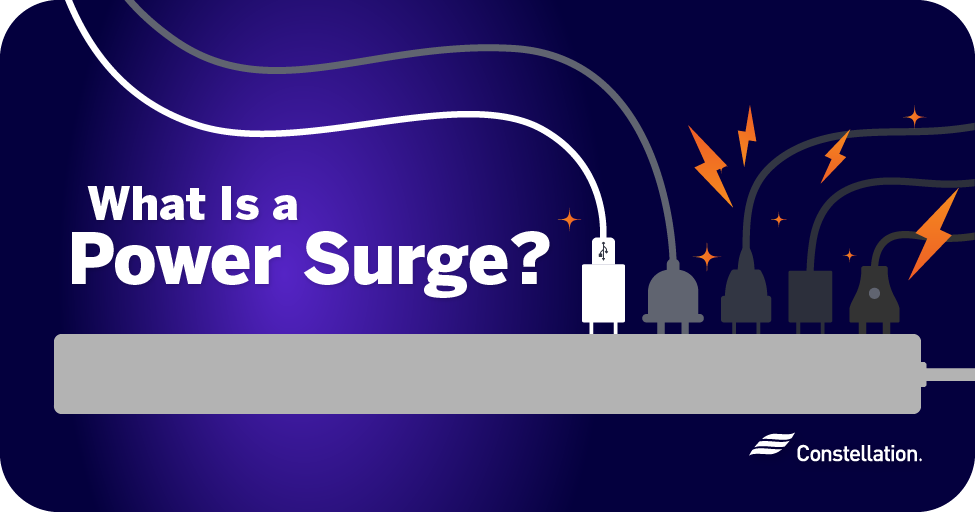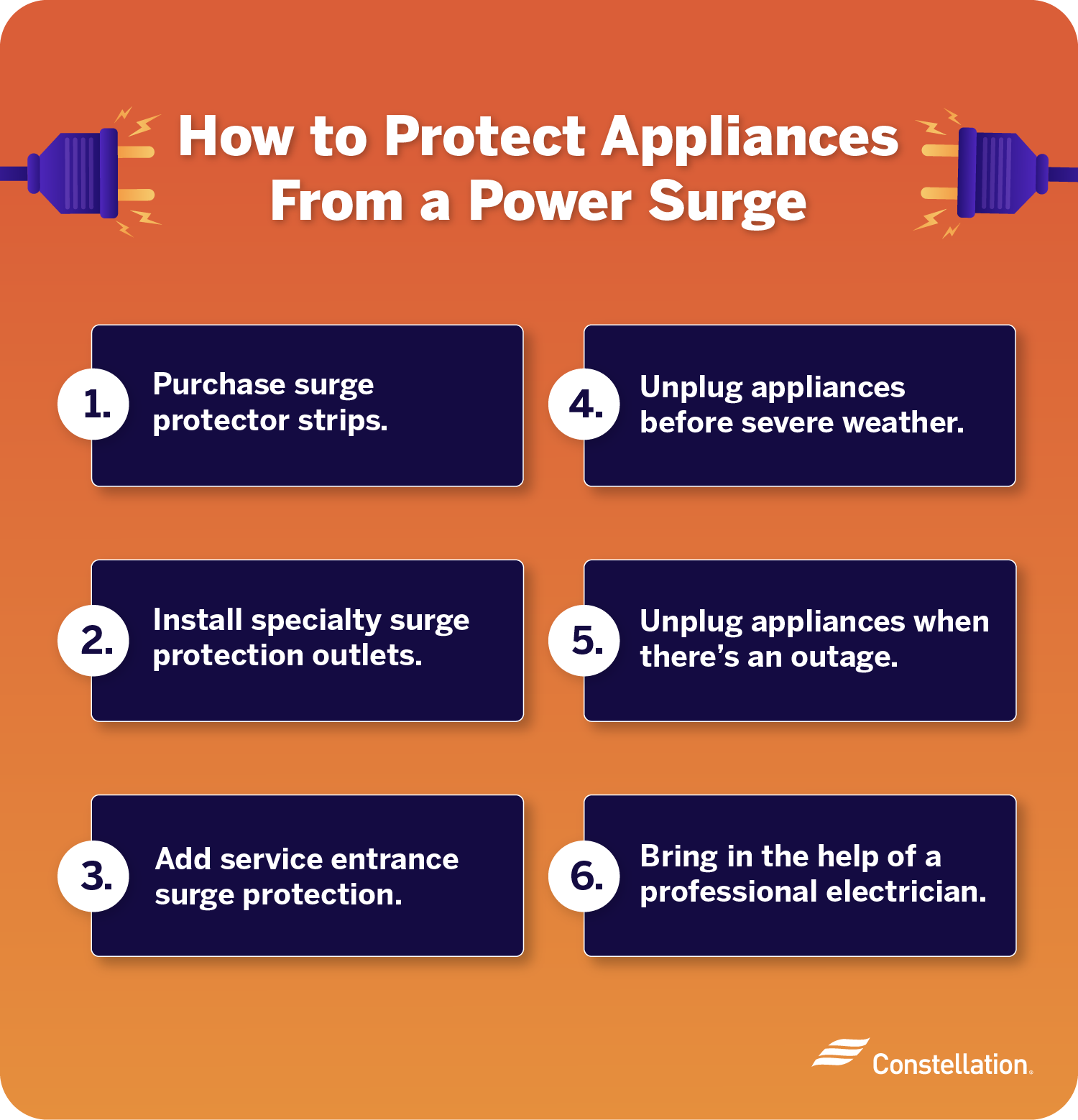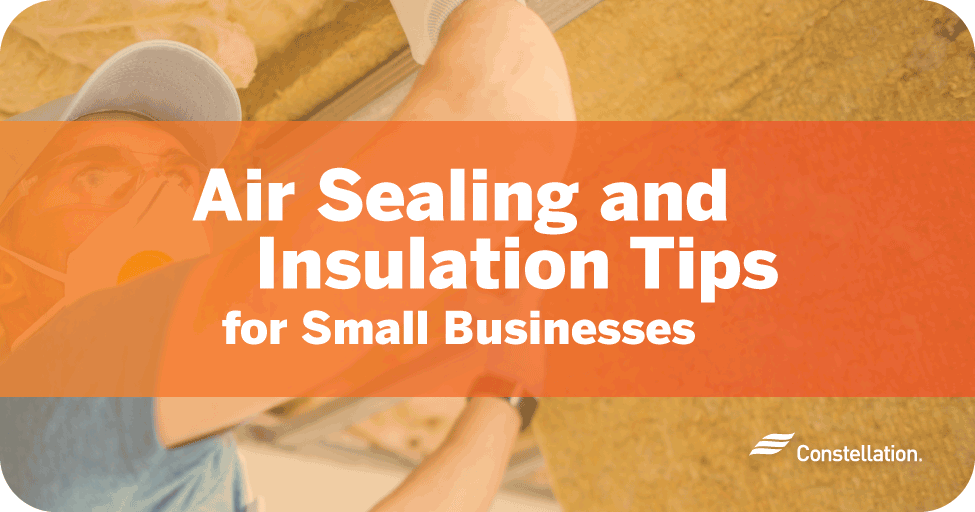
- Category:
Disaster Preparedness - Published:
May 11, 2023 - Updated:
June 8, 2023
What Is a Power Surge?
A power surge or electrical surge is a relatively rare, but potentially damaging phenomenon that can occur in any electrical power system.
Before you can protect your home and appliances from this danger, it helps to know exactly what is a power surge and what causes power surges.
A power surge is a sudden increase in voltage in an electrical system. A power surge in a house may fry your delicate electronic devices and damage appliances when too much power surges into their circuits.
Most homes are wired for 120 volt service. Some appliances, like water heaters, clothes dryers, HVAC systems, induction stoves, and EV chargers use 240 volts. The general threshold for what is a power surge is 170 volts over normal.
Our modern power grid provides reliable and even power most of the time, however, disruptions that lead to power surges can happen. It is important to know the signs of a power surge in a home and how to protect your belongings from them. Here are the key things to know about an electrical surge:
What Causes a Power Surge?
The sudden flow of excess volts that define what is a power surge can be caused in many ways:
- Overloaded circuits. If you plug too many power-hungry devices into the same socket, drawing power from the same circuit, you can overwhelm it and get a huge voltage spike when excessive power is being drawn. You not only risk destroying those devices, you could create a significant fire hazard.
- Wiring problems. If you have old wiring or wiring that wasn’t properly installed, you have a risk for one of the most common sources of what causes power surges. Older homes often have cloth covered wires that are a fire just waiting to happen. If you see burn marks on outlets or smell burning, you may have faulty wiring. Alternatively, you might hear a subtle buzz coming from outlets or your circuit breaker may be frequently tripped.
- Power outage. If your home or neighborhood suffers a power outage, an electrical surge is likely when power is restored. The sudden jump from zero to being back on can damage devices plugged into the system.
- Lightning. Should lightning strike your home, nearby, or power lines providing electricity to your house, it will send thousands of volts of electricity into your wiring. This overwhelming burst of energy will destroy your devices and circuits in nanoseconds.
- Power grid issues. Damage to transmission lines, unusually high demand, issues with the grid or maintenance work being conducted to any part of the system can, although very rarely, cause a power surge.
- Miscellaneous events. This is the catch-all category for causes that might spark a power surge in a house. They include a car crashing into a power line, a tree falling on wires, a rodent chewing through a conduit and other rare or strange occurrences.
The Potential Damages and Costs of Power Surges
Power surges can damage anything plugged into the electrical system of your house, even when it isn’t turned on. An electrical surge can flow through the wiring of your home and into the circuits of everything from televisions, computers and refrigerators, overpowering and melting connections.
Depending on the device, a power surge will likely result in a hefty repair bill or possibly destroy it altogether–particularly sensitive electronics. In severe cases, a power surge can cause a fire or harm people or pets. Power surges caused by lightning can be very dangerous, so stay away from electronics and be vigilant.
How to Protect Appliances from a Power Surge

Preventing power surge damage is worth the investment. Here are the best ways to protect your home from a power surge:
- Purchase surge protector strips. It looks and functions like a plug strip, but it has built-in protection against electrical surges. Read the packaging carefully to make sure you are buying a surge protector, not an ordinary power strip.
- Install specialty surge protection outlets. Where a strip is impractical, you can retrofit regular outlets with those that protect devices plugged into them.
- Add service entrance surge protection. You can increase protection by adding this device with your main electrical panel. It will protect your whole house, including things like water heaters that are hard to unplug.
- Unplug before severe weather. If bad weather is in the forecast, unplug at least your sensitive electronics.
- Unplug when there’s an outage. If you suddenly lose power in your home, it helps to know what to do if the power goes out. Disconnect everything that draws power. Power surges are common when electricity is restored.
- Bring in a professional electrician. Don’t delay if you have so much as a hint of a problem. Bring in a professional electrician for a look, particularly if you have experienced a long power outage.
Power Surges – FAQs
What are the signs of a power surge?
How to prove a power surge happened isn’t easy. Look for these signs that something has gone wrong:
- Your circuit breakers have tripped
- Flickering and dimming lights
- Electric clocks on appliances blink the wrong time
- You may smell a burning aroma or see scorch marks on outlets
- You might hear a hum
- If you have wall outlets with reset buttons, they will move to the reset position
Should I worry about a power surge?
Power surges are rare but can be expensive. Rather than worry, be prepared and protected. Do report a power outage or any damage to electrical infrastructure when you see it.
How long do power surges last?
Power surges are typically brief. For most power surges at home, they last just milliseconds.
What happens when you have a power surge?
When large amounts of power surge through your home’s electrical system, it destroys circuits in appliances and electronics and can potentially spark a fire.
How often do power surges happen?
Minor power surges occur multiple times a day. Generally, they happen when you plug in or unplug a device and divert electricity to and from other appliances. Most of these power surges are too quick and small to be detected and are not strong enough to cause disruptions to your service.
Will a power surge trip a breaker?
In many cases, a power surge will trip your circuit breakers. Surges happen faster than a circuit breaker can react, so your breaker may not provide enough protection.
Does a power surge affect the whole house?
How a power surge affects your house varies depending on its cause. An overloaded circuit will have a local effect in the section of your house served by that circuit, whereas lightning will likely harm devices throughout your home.
How do I turn the power back on after a surge?
Reset your large appliances first, checking each one by one. Have a professional inspect your HVAC and water heater to make sure they haven’t been damaged.
Can a power surge cause a house fire?
If the power surge is strong enough or if your wiring is faulty, fire is a real possibility. The surge can heat your wiring extremely fast, causing combustion.
Learn More Energy Tips from Constellation
While power surges are rare, the damage they can cause to your appliances and electronics is considerable. Protecting yourself, now that you are armed with this information is neither difficult nor expensive. We invite you to explore more energy tips here and to compare energy rates.




